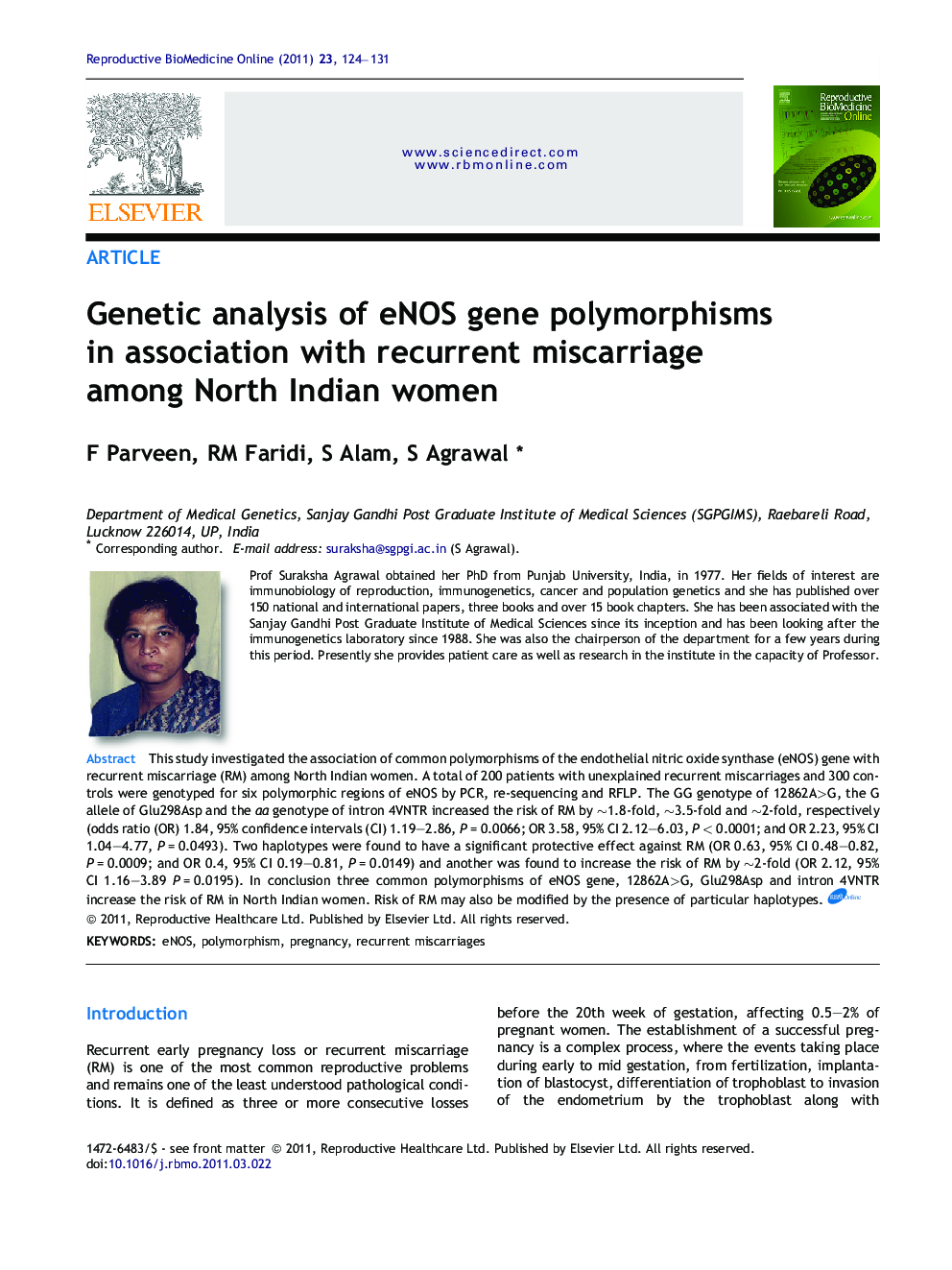| Article ID | Journal | Published Year | Pages | File Type |
|---|---|---|---|---|
| 3971484 | Reproductive BioMedicine Online | 2011 | 8 Pages |
This study investigated the association of common polymorphisms of the endothelial nitric oxide synthase (eNOS) gene with recurrent miscarriage (RM) among North Indian women. A total of 200 patients with unexplained recurrent miscarriages and 300 controls were genotyped for six polymorphic regions of eNOS by PCR, re-sequencing and RFLP. The GG genotype of 12862A>G, the G allele of Glu298Asp and the aa genotype of intron 4VNTR increased the risk of RM by ∼1.8-fold, ∼3.5-fold and ∼2-fold, respectively (odds ratio (OR) 1.84, 95% confidence intervals (CI) 1.19–2.86, P = 0.0066; OR 3.58, 95% CI 2.12–6.03, P < 0.0001; and OR 2.23, 95% CI 1.04–4.77, P = 0.0493). Two haplotypes were found to have a significant protective effect against RM (OR 0.63, 95% CI 0.48–0.82, P = 0.0009; and OR 0.4, 95% CI 0.19–0.81, P = 0.0149) and another was found to increase the risk of RM by ∼2-fold (OR 2.12, 95% CI 1.16–3.89 P = 0.0195). In conclusion three common polymorphisms of eNOS gene, 12862A>G, Glu298Asp and intron 4VNTR increase the risk of RM in North Indian women. Risk of RM may also be modified by the presence of particular haplotypes.In many women who have had three or more miscarriages, no definite cause for the condition can be found. It was recently found that implantation depends on the receptivity of maternal endometrium which in turn is influenced by synergistic action of nitric oxide (NO). The production of NO in endothelial cells increases during pregnancy and contributes to vasodilation and vasopressor responses. NO is synthesized by a family of NO synthase (NOS) enzymes in which three isoforms have been identified: neuronal (nNOS, NOS-1), inducible (iNOS, NOS-2) and endothelial (eNOS, NOS-3). It has been shown that polymorphisms in the coding and non-coding regions of eNOS may alter eNOS expression and/or activity and thus cause a decrease in NO synthesis which may predispose patients to hypertension, vasospasm and atherosclerosis, renal failure, pre-eclampsia and recurrent miscarriages. In this study conducted in North India, we tested polymorphisms of the eNOS gene in women with and without recurrent miscarriage and tried to find if any particular polymorphism increased the probability of a woman having recurrent miscarriage. We found that at least three common polymorphisms of the eNOS gene – 12862A>G, Glu298Asp and intron4 VNTR – increase the risk of recurrent miscarriage in North Indian women.
